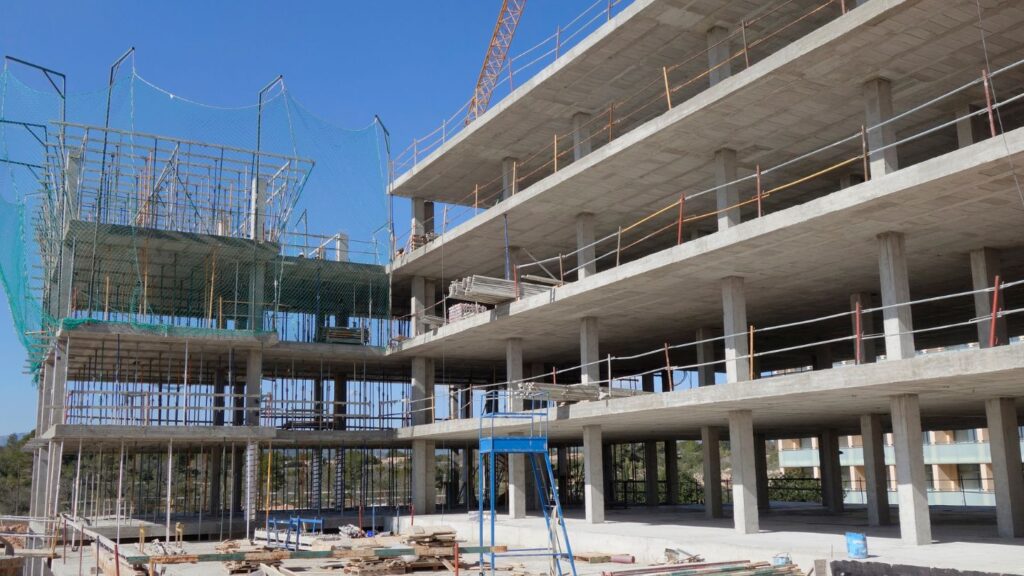Boost Your Construction Bids – Request a Precision Estimate!
- Accurancy
- Efficiency
- Transparency
- Customization
- Time Saving
- Professionalism
- Cost Control

Accurate estimating is the cornerstone of successful construction projects. Both owners and contractors hinge their decisions on these estimates, propelling a project from preconstruction to completion. This crucial step ensures that a project remains financially viable and aligns with the allocated budget. In this article, we will explore the multifaceted role of a construction project estimator, detailing the steps involved, challenges faced, and the evolving landscape of construction cost estimation.

The primary responsibility of a construction project estimator is to provide an accurate estimate of the total project cost. This involves considering all potential expenses and accounting for uncertainties.

Make Informed Design Decisions Showcase Your Design Ideas
Get RenderingEstimators play a crucial role in project planning, collaborating with architects, engineers, and project managers to align cost estimates with the project’s goals and objectives.
Once the project is underway, construction project estimators actively manage the budget, tracking expenses, identifying cost-saving opportunities, and addressing unexpected changes.
Estimators need strong analytical skills to interpret project specifications, analyze data, and make precise estimations.
The devil is in the details. Estimators must pay close attention to every aspect of a project, ensuring that no potential cost is overlooked.
A deep understanding of construction materials, techniques, and industry trends is essential for accurate cost predictions.
Modern estimators leverage specialized software to streamline the estimation process, improving accuracy and efficiency.
BIM tools provide a three-dimensional model of a construction project, offering a more detailed and integrated approach to cost estimation.
Estimators must navigate the challenges of volatile material costs, staying updated on market trends to provide accurate estimates. The construction industry is dynamic, and prices for materials like steel, concrete, and lumber can experience significant fluctuations. A skilled estimator employs market analysis and historical data to anticipate these changes, ensuring that cost estimates reflect the current economic landscape.

As projects evolve, estimators need to adapt to changes in scope, ensuring that the budget reflects the project’s current requirements. Changes in design, unexpected site conditions, or modifications requested by the client can impact costs. Estimators play a crucial role in communicating these changes to stakeholders and adjusting estimates accordingly to maintain financial transparency.
Delays can impact costs significantly. Estimators must consider potential delays due to weather, permitting issues, or unforeseen site challenges. By factoring in the likelihood of delays, estimators contribute to a more realistic project timeline and budget. Effective communication with project managers and stakeholders helps mitigate the financial repercussions of unforeseen setbacks.
Competent estimators contribute to project profitability by delivering accurate estimates that align with the project’s financial objectives. Their ability to foresee potential challenges, account for all costs, and create a realistic budget enhances the likelihood of a project’s financial success.
A skilled construction project estimator minimizes the risk of cost overruns, safeguarding the financial health of the project. By conducting thorough analyses, considering potential challenges, and incorporating contingency plans, they provide a financial framework that can withstand unexpected circumstances.

Construction estimators follow a standardized process, crucial for accurate pricing and competitive bidding. Let’s delve into the eight fundamental steps in construction estimating.
The bid package comprises essential documents for bidding, such as agreements, bond forms, general conditions, and construction specifications. Estimators meticulously review these documents, ensuring a comprehensive understanding of the project.
A thorough site visit provides invaluable insights into site conditions, potential challenges, and influences on project costs. Estimators collaborate with contractors to assess the impact of site conditions on project delivery.
Estimators perform a material takeoff by reviewing construction documents and counting every item required for the project. This detailed analysis ensures accurate estimations of material needs and equipment requirements.
With a comprehensive list of materials and equipment, specialty contractors collaborate with suppliers and vendors to obtain pricing information. Considerations include material waste, bulk pricing, and the validity of quotes.
Estimators determine the labor necessary for a project, specifying roles, hours, and crew productivity. The loaded labor rate, encompassing wages, taxes, insurance, and other factors, ensures a realistic assessment of labor costs.
Insurance and bonding costs, essential for risk mitigation, are factored into project estimates. Estimators consider general liability insurance, builder’s risk insurance, and various construction bonds in their calculations.
Estimators account for indirect field costs (permits, site cleaning) and general overhead costs (rent, administrative salaries). These costs, while not explicit in bid packages, are vital for accurate project estimates.

After calculating direct and indirect costs, estimators adjust the total to account for profit and contingency. Profit margins and contingency percentages vary, with careful consideration of the contractor’s growth goals and industry standards.
Many construction project estimators hold degrees in construction management, civil engineering, or a related field. These educational backgrounds provide a solid foundation in construction principles, project management, and cost estimation techniques.
While formal education is valuable, hands-on experience is equally crucial. Aspiring estimators often start in entry-level positions within the construction industry, gaining practical insights into project dynamics, materials, and processes.
The construction industry evolves, and estimators need to stay abreast of the latest trends, technologies, and regulations. Continuous learning through workshops, courses, and certifications ensures that estimators maintain a high level of expertise.
Effective estimators possess strong analytical skills to interpret complex project requirements and data. Additionally, excellent communication skills are essential for conveying cost-related information to diverse stakeholders, including clients, project managers, and construction teams.

Transform your projects with precision and expertise by scheduling a personalized consultation today. Our experts are ready to guide you through a tailored process that will elevate your estimating game.
Upload Your PlanModern construction project estimators leverage specialized software to streamline the estimation process. These tools assist in automating calculations, conducting material takeoffs, and ensuring accuracy in cost projections.
Proficiency in BIM tools enhances the estimator’s ability to visualize the entire construction project in three dimensions. BIM facilitates more accurate cost estimations by providing a detailed representation of the project’s components and interactions.
Estimators benefit from the automation of takeoffs powered by machine learning. These tools can analyze project drawings and documents to automatically determine the quantity of materials needed, reducing manual effort and potential errors.
Construction estimating software minimizes human error by enabling precise calculations. Estimators can make adjustments to costs, and these changes are instantly reflected across the entire estimate, ensuring accuracy and consistency.
Successful construction businesses embrace a data-driven estimating process. Job costing data from past projects provides valuable insights, allowing estimators to make informed decisions and create estimates that are both competitive and profitable.
Estimators delve into indirect and overhead costs, considering permits, site cleaning, professional services, and other essential elements.

By factoring in these costs, estimators create comprehensive estimates that reflect the true financial burden of the project.
Accurate construction estimating is pivotal for the success of any construction project. It serves as the foundation for informed decision-making, allowing project stakeholders to assess feasibility, plan effectively, and allocate resources judiciously. Here’s a closer look at why accurate estimating is indispensable:
Accurate estimates are the linchpin for aligning a project with its allocated budget. They provide a roadmap for financial planning, ensuring that every aspect of the project is accounted for within the specified financial constraints.
Owners and contractors rely on initial cost estimates to determine the feasibility of a project. These estimates guide critical decisions, such as whether to proceed with the project, seek modifications, or explore alternative approaches.
Thorough cost estimates help identify potential risks and challenges, allowing project teams to develop contingency plans. By anticipating uncertainties, teams can navigate unexpected hurdles without jeopardizing the project’s financial health.
Automated takeoffs powered by machine learning technologies can analyze project drawings and documents to determine the quantity of materials needed. This not only expedites the estimation process but also enhances accuracy.
Construction estimating software minimizes human error, allowing estimators to focus on the intricacies of the project rather than manual calculations. This precision ensures that estimates are reliable and consistent.

Estimating software, along with other construction management tools, significantly boosts productivity. Estimators can concentrate on crucial aspects of estimating, such as determining equipment needs and finding optimal pricing, while the software handles calculations and tabulations.
After calculating all the costs associated with a construction project, the estimator’s crucial task is adjusting the total to account for both profit margin and contingency. This final step is essential for determining the sales price, representing the fee that the contractor earns for the contract.
Each construction business establishes its own minimum attractive profit margin, considering growth goals, market conditions, and industry standards. The profit earned from a project can be reinvested to support business growth, making it a key component of the overall financial strategy.
Contingency is a portion of the contract set aside for overruns and unexpected challenges, which are often inherent in construction projects. Many construction businesses add anywhere from 5-10% of the contract price to account for contingency. This fund acts as a buffer, ensuring that unforeseen circumstances do not jeopardize the project’s financial viability.
Once the sales price is determined, a bid manager typically creates a construction proposal that details everything included in the bid price. This documentation is essential for bid reviewers to ensure that all aspects of the scope of work are included in the bid price.
Using the Construction Specifications Institute (CSI) format in the estimating process facilitates a clear comparison between each section of the bid price and the specifications. Even in lump sum contracts, a standard format simplifies the creation of a schedule of values and improves integration between estimating software and accounting systems.
Construction estimating software plays a pivotal role in automating calculations, minimizing errors, and increasing overall efficiency in the estimation process. It allows estimators to focus on critical aspects of the project, contributing to accurate and competitive bids.
Estimators consider potential delays due to various factors such as weather, permitting issues, or unforeseen site challenges. By factoring in the likelihood of delays, estimators contribute to a more realistic project timeline and budget.
Contingency is vital because it provides a financial buffer for unforeseen challenges and overruns. Including contingency in estimates ensures that the project remains financially viable, even in the face of unexpected circumstances.
Different types of estimates serve various purposes throughout the project lifecycle, from early feasibility assessments to detailed bid proposals. They provide valuable insights for decision-making at different stages of the construction process.
While plantation shutters may have higher upfront costs, their durability and timeless appeal make them a cost-effective choice in the long run.
Here I am going to share some steps to get your construction project estimate report.
You can send us your plan on info@estimatorflorida.com
Before starting your project, we send you a quote for your service. That quote will have detailed information about your project. Here you will get information about the size, difficulty, complexity and bid date when determining pricing.
Our team will takeoff and estimate your project. When we deliver you’ll receive a PDF and an Excel file of your estimate. We can also offer construction lead generation services for the jobs you’d like to pursue further.



561-530-2845
info@estimatorflorida.com
Address
5245 Wiles Rd Apt 3-102 St. Pete Beach, FL 33073 United States
561-530-2845
info@estimatorflorida.com
Address
5245 Wiles Rd Apt 3-102 St. Pete Beach, FL 33073 United States
All copyright © Reserved | Designed By V Marketing Media | Disclaimer